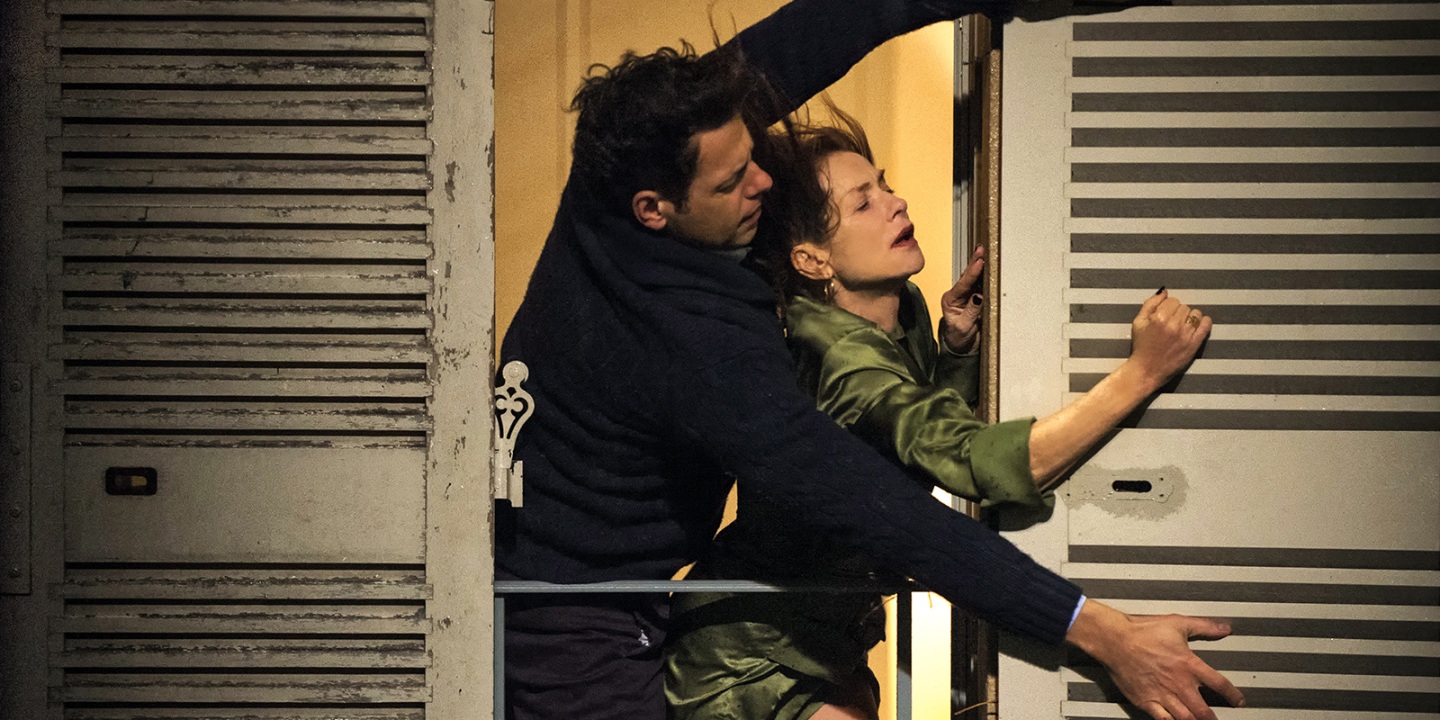By Josh Cabrita
VIFF is a religious, family holiday for local cinephiles. From September 29 to October 14th, bread will be broken, beer will be poured and — true to the spirit of most family gatherings — heated arguments will take place. But aside from bringing together some of my favorite people, VIFF is a gathering place for the festival circuit’s best offerings, a port of call for the highlights of Sundance, Berlin, Cannes, Venice and TIFF. To keep in step with the festival’s disparate programming, here are five recommendations filtered from the hundred or so movies I saw at other festivals.
5. Elle
The director of a robot Jesus movie (RoboCop) and a stripper melodrama inspired by Douglas Sirk (Showgirls), Paul Verhoeven, hasn’t lost his chameleon-like abilities in his new film, Elle. Starring Isabelle Huppert as a video game designer raped by a man who breaks into her home, Elle is a would-be Michael Haneke film, even though it plays more like Jean Renoir’s The Rules of the Game. With the ability to place insight and poignancy within kitschy genre codes, the latest from the 78-years-young provocateur shows that he hasn’t lost any of his edge.
4. Werewolf
Werewolf is the heart-shattering feature debut from Cape Breton-filmmaker Ashley McKenzie, whose previous short films Stray and Four Quarters may be familiar to VIFF-goers. Playing in the Future//Present program, which showcases uncompromising films by emerging Canadian filmmakers, Werewolf is a startlingly accomplished work. From the strong, naturalistic performances in front of the camera to the daring formal conceit behind it, McKenzie has a strong, empathetic voice.
We trace the everyday lives of Blaise and Nessa, a methadone-addicted couple caught in a cycle of poverty. Like the bike in de Sica’s Bicycle Thieves, this couple’s lawn mower is their livelihood, the only way for them to scrape up a few bucks. But rather than simply harken back to realist filmmakers in her lineage, McKenzie is pushing forward, finding a singular method — a kind of “impressionistic realism” — to represent those on the fringes of society, to universalize their plight. Her film is mostly shot in close-ups and off-kilter compositions, so reaction shots are rare. Instead, she depicts specific objects that act like a kind of synechdoche, a part representing the whole inner workings of these characters. Because of all of this, Werewolf is not a film about de-humanized junkies, but simply two people trying to find fulfillment.
3. Toni Erdmann
Nobody has seen anything quite like Toni Erdmann. This is Maren Ade’s first film since 2009’s Everyone Else, and it’s a sprawling nearly 3-hour relationship comedy. Made up of extended sketches that somehow coalesce into something profoundly moving, Toni Erdmann climaxes with one of the funniest set-pieces I have ever seen. The film centers on the divorced and lonely Winfried and his relationship to his industrious, workaholic daughter. The father disguises himself as the eponymous persona, sporting a wig and dollar-store fangs. Winfried, as Toni, forces himself into his daughter emotionally cold working environments, and through the distance created by his alter-ego, he and his daughter share thoughts and feelings they otherwise would have kept bound up. It’s a familiar setup for a film that is anything but.
Almost nobody knew what the hell to make of Olivier Assayas’ technological ghost movie when it premiered in Cannes to boos, applause and even, (my) tears. Personal Shopper seems so transparent it might vanish from the screen at any moment. Kristen Stewart plays Maureen, who performs titular duties all the while mourning the loss of her recently deceased brother. In a daring move by Assayas, the bulk of the film’s middle depicts Maureen as she moves around Paris texting something or someone — an imposter, a malicious ghost or the soul of her brother? Not only is Personal Shopper one of the most unnerving horror films of recent years, but it’s also a sober reflection on a modern world that makes us living ghosts.
Although there aren’t any literal ghosts in Kenneth Lonergan’s follow-up to Margaret, Lee Chandler’s departed family members haunt every frame of the film. Following the death of his brother, Lee temporarily moves back to Manchester, a place that seems to have brought him only heartache and sorrow. There, he sorts out various arrangements, not the least of which is who will take custody of his teen nephew. Lonergan, though not the most stylish of directors, is one hell of a dramatist. Manchester by the Sea is heartily made, a “real movie” at a time when it’s easy to be cynical about multiplex fare. It is, quite simply, why we go to the movies.
